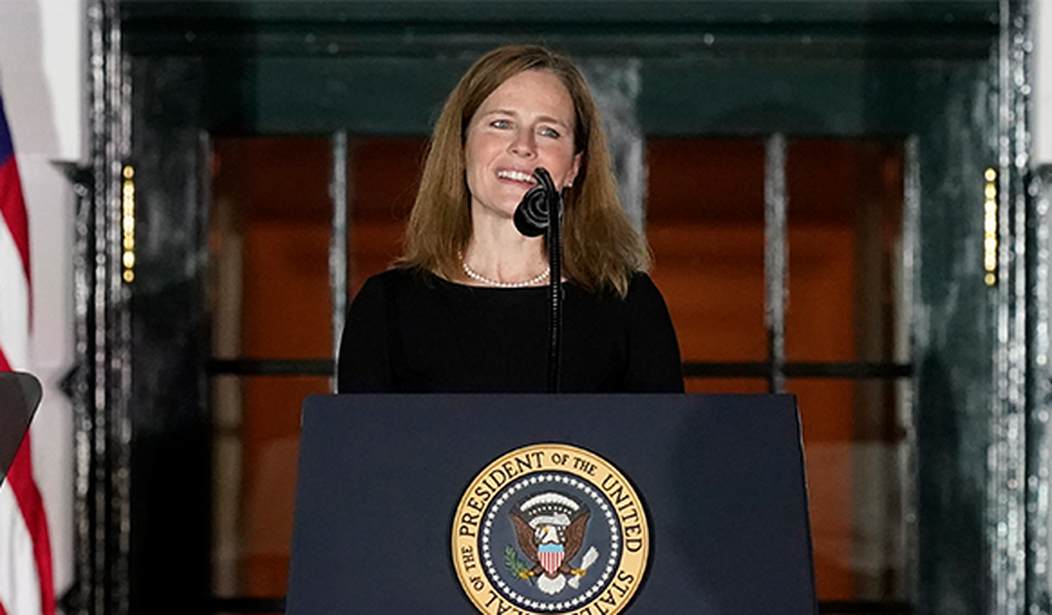As Amy Coney Barrett takes her seat on the Supreme Court, much will be made of the new “6-3 conservative majority.” That is a flawed observation for two reasons. First, the inclusion of Chief Justice John Roberts in that majority is proving to be a dicey presumption. Second, the description of those justices as “conservative” misses the point of what they are supposed to do.
They are not there to oppose Obamacare, stand up for man-woman marriage or assist the pro-life agenda. Those are conservative interests, properly pursued through the crafting of law. The Supreme Court’s job is to assess laws which are passed, evaluating them through the lens of the Constitution.
That process must be completely separated from how justices personally feel about any laws before them. In a tenure that can last generations, justices may have to clear a path for laws they oppose while striking down laws they personally support. To do otherwise relegates them to the distracted role of black-robed legislators.
That is, of course, exactly what liberals want their judicial appointees to be. The left, upon meeting public opposition on an issue, can often be counted on to turn to their familiar annex of lawmakers in the courts. There, activist jurists can reliably be found to strike down obstacles from pesky voters.
This is precisely what happened in Roe v. Wade and Obergefell v. Hodges, the rulings that created wholly artificial rights on the hotbed issues of abortion and gay marriage, neither of which are found in any passage of the Constitution. The Bill of Rights clearly assigns such unmentioned matters to the states for consideration by their respective populations.
Recommended
But the 1973 majority could not countenance any state saying no to women seeking to end pregnancies, and the 2015 majority could not envision any state exclusively recognizing unions of one man and one woman. Both rulings represent a sacrifice of the rule of law on the altar of personal agendas.
Since liberalism guided those rulings and countless others featuring social and political agendas usurping legal logic, it has fallen into the vernacular that these decisions are made along a left-right spectrum, with liberal judges acting one way, conservative judges the opposite.
But while judicial tyranny is hatched by personal liberalism, its remedy is not ideological conservatism. The axis is better defined as between regard and disregard for our nation’s bedrock document. Even though it seems that only the conservatives are devoted to honoring the Constitution these days, if we identify conservatism as the attribute we seek, we are the flip side of an activist coin.
Twenty years ago, as Al Gore sought to wrestle the state of Florida from its determined winner George W. Bush, the battle climbed the ladder to the Supreme Court, where the attempt was properly extinguished. While the 2000 election case was called Bush v. Gore, the court did not rule in Bush’s favor because the majority wanted him to be president. It properly found that the Florida Supreme Court had sought to rewrite election law from the bench.
So as Amy Coney Barrett ascends to the highest court in the land, I have no interest in whom she is voting for or how she politically weighs cases or litigants to come before her. I care about her constitutional steadfastness. She did us the favor in her confirmation hearings of asserting that she has no animus toward the Affordable Care Act. This is precisely the proper judicial view.
But the problem we face is that liberal justices cannot be counted on to similarly shelve their affinity for it, any more than they looked past their personal feelings about abortion or gay marriage.
This is why the prospect of future 6-3 rulings bodes well not just for conservatism but for the nation. Justice Barrett is now a backstop for those days when John Roberts loses his way. This majority may at times strike down laws Republicans have crafted with the support of conservative voters. If such laws do not pass constitutionalist muster, that is a proper result.
The figure of Lady Justice, represented in various works of art, is recognizable by the scales she holds and the blindfold she wears. This represents the weighing of competing sides of a case without regard for who the participants are. We should not tilt justice for or against anyone because of racial, social, personal or economic factors. The arrival of another Supreme Court justice who grasps this is a cause for celebration. The founders would smile.
It is a good thing Justice Barrett arrived for her hearings with a strong background as a professor. Many of her answers served the necessary purpose of instructing Democrat senators on how the law works. As they buried her in hand-wringing advocacy for Obamacare, abortion rights and other favored agendas, she properly informed them that she would keep her own personal feelings out of her rulings. One imagines a future in which her liberal court colleagues might find the discipline to do the same.

























Join the conversation as a VIP Member